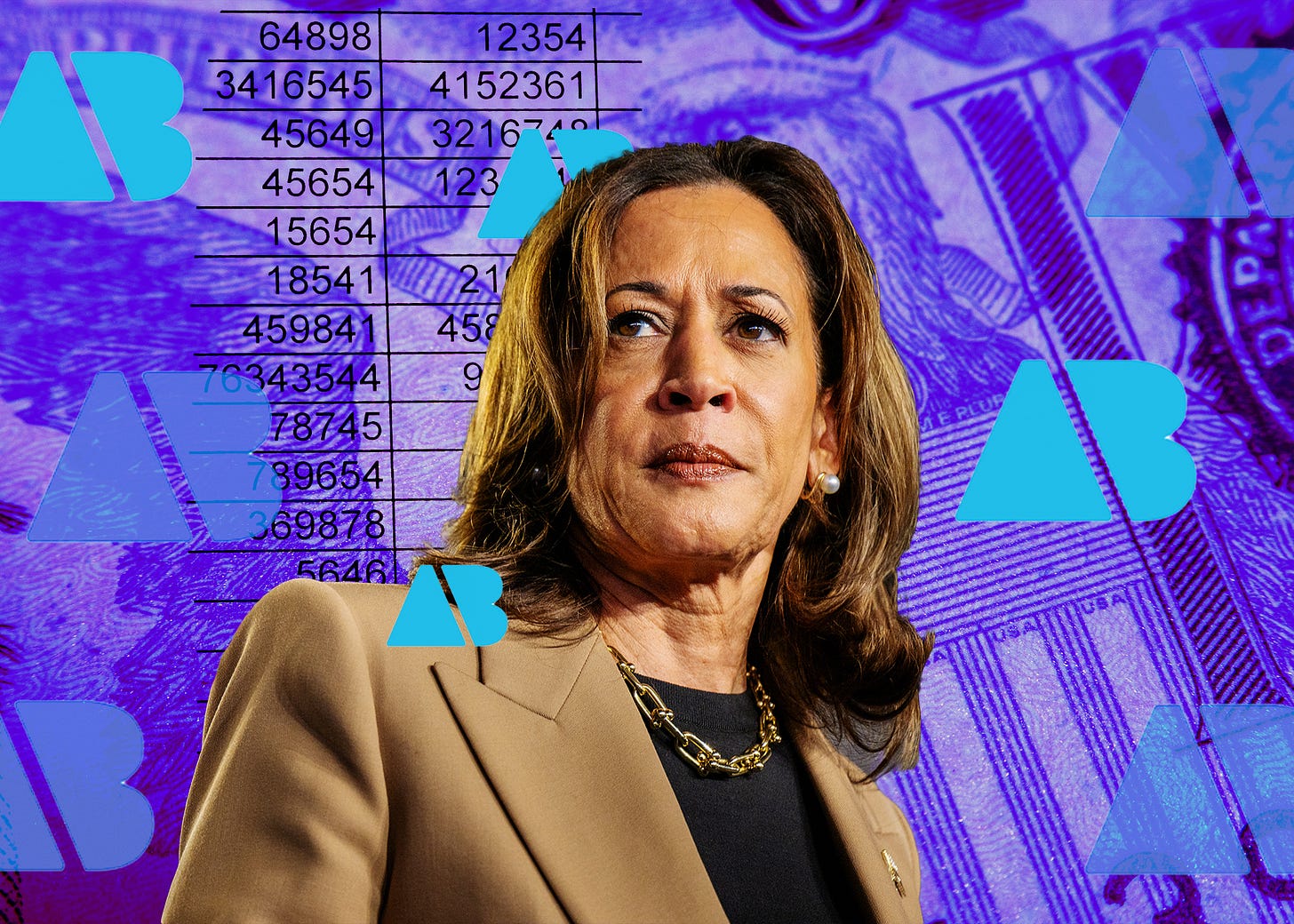
Dem Scam PACs That Harris Criticized Are Booted Off Fundraising Platform
ActBlue took the rare step of removing groups that it says were misusing its tools.
THE BIGGEST ONLINE DONATION PORTAL in Democratic politics has taken the extraordinary step of throwing a number of so-called scam PAC groups off of its platform, limiting their ability to raise money from unsuspecting donors in the final weeks of the election.
Earlier this month, ActBlue quietly stopped allowing the political action committees Democratic Power Inc., Democratic Victory Inc., and Democrats United to fundraise through its site. The decision came after the platform determined that the PACs had been misusing its tools—and right as Kamala Harris’s campaign began publicly warning donors that these groups were scams (an official at ActBlue said those warnings did not play a role in their decision).
“ActBlue has a responsibility to ensure the entities on our platform are using our technology appropriately and in line with our terms of service,” said Megan Hughes, ActBlue’s communications director. “We are committed to building a sustainable grassroots movement and take all issues related to our user standards seriously.”
The three banned PACs are part of a constellation of groups that have drawn suspicion and ire from the mainstream party. They operate in relative obscurity, going to great lengths to keep secret who is behind them. But they’re all tied to a small network of operatives who take the money raised by those PACs and spend a small portion on candidates and committees and much more on the services of other firms that they own or operate.
After Harris’s entrance into the campaign in mid-July, these PACs began peppering donors with a flood of fundraising solicitations asking for money to help support her candidacy, often with emails or texts pledging “700% Match” for the donations made. Reports by The Bulwark over the summer revealed that those groups were, in fact, taking advantage of the groundswell of support for the vice president to line their own pockets. Democrats aligned with the campaign accused the PACs’ operatives of outright deceit.
In the months following, the groups have spent virtually nothing directly on Harris’s election. A review of campaign finance records covering the months of July (when Harris entered the race) and August show that, collectively, Democratic Power Inc., Democratic Victory Inc., and Democrats United raised just over $9 million and spent around $5.75 million.
Of that $5.75 million, $960,000 went to Senate Majority PAC, the main super PAC for Senate Democrats. Another $50,000 went to the Democratic Attorneys General Association, $100,000 went to the Democratic Party of Virginia, and $20,000 went to the dark money group Future Majority Inc. The closest those groups came to backing the Democratic nominee for president was a $25,000 expense for “Revel Global Events, Inc.” likely for an event at the Democratic Convention in Chicago.
By contrast, those same groups collectively spent $1.67 million on the services of the data list firm PACtion, which was founded by Ryan Morgan, the chief operator of all three so-called scam PACs. The groups also spent $820,000 on Bluefoot Political, LLC, a relatively obscure firm that is closely tied to Morgan; and $20,000 to Penn Avenue Consulting—a firm associated with fellow Democratic Victory officer Stephen Jewett.
Morgan did not return a request for comment, though he had previously defended the actions of those PACs by stressing that the expenses they made were to raise more money that they could then put into more Democratic entities.
The Harris campaign did not comment either. However, the campaign did recently send out fundraising emails in which they warned prospective donors not to give to groups with which they aren’t associated.
On October 8, the Harris campaign sent out a fundraising email noting that people’s inboxes and text messages were being “filled with campaigns and organizations asking for donations.” But, it went on, “the sad reality is that a few of those groups make it look like your donation is going to elect Kamala, when really they are just keeping the money for themselves.” Three days later, a fundraising email authored by Gov. Tim Walz stated: “A bunch of groups that purport to be our campaign, well . . . they just aren’t. They’re scam PACs.”
An ActBlue official said the decision to remove Morgan’s PACs from their platform was made prior to the most recent Harris communications going out and was related to the use of the platform’s tools and not how the entities were spending money. The official said that their decision was informed by a full review of “all records related to these groups going back to 2020” and that the “decision could impact current and future entities using our platform.”
The company has been reluctant in the past to take such a step, fearing the obligation of policing what type of fundraising activity was legitimate or not.
But Democratic Power Inc., Democratic Victory Inc., and Democrats United were on the company’s radar. ActBlue officials reached out to the PACs in July to remind them of their account use policies. It also issued a warning around that time.
“ActBlue has a responsibility to ensure the entities on our platform are using our technology appropriately and in line with our standards of conduct,” said Hughes. “When we identify potential violations, we work with [users] to correct them or move to enforcement action. ActBlue has previously deplatformed users that failed to comply with our account use policy and terms of service. We are committed to building a sustainable grassroots movement and take all issues related to our user standards seriously.”
















